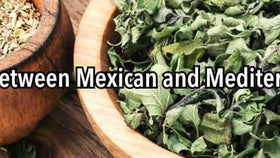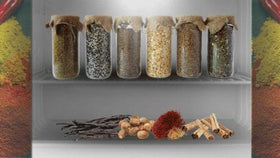Is Flaky Salt The Same As Sea Salt?
While the word, “salty”, tends to be a relatively uniform flavor descriptor, salt itself is not as simplistic of an ingredient as many folks have come to believe. If you are inquiring as to whether flake sea salt is the same as sea salt, this is likely one of your first steps into your own exploration into the numerous types of salt there are. That said, all salt is nearly the same when it comes to chemical composition, whether it is referred to as table salt, sea salt, flake salt, fleur de sel, coarse salt, or any other nomenclature; simply put, it is all sodium chloride and it is all derived of sea water, whether directly or in its geographical past, meaning all varieties of salt fall under the same umbrella category of sea salt.
So the simplest way to answer your question is, “yes, flake sea salt is sea salt”. That said, while all flake salt is sea salt, not all sea salt is flaky sea salt. Let’s take a look at what sets flake sea salt apart.
What is Flake Sea Salt?
Flake sea salt is known by many names.
Flake sea salt, flaky salt, or pyramid salt are differing names for a one particular type of sea salt. They earned the name, “flake” salt due to their flaky texture, with a larger area mass that tends to be flat or pyramid-like in shape.
Flake sea salt is not uniform in shape.
Quite simply put, flake sea salt is—you guessed it—flaky. It is a type of sea salt that is rough and flaky, rather than fine ground. The edges are irregular, making the individual flakes resemble rough-cut diamonds, shards of tempered glass, or even miniature glass-like replicas of the great pyramids.
Flake sea salt is crunchy.
The crystals are also thinner than most coarse salts, which supplies a brittle crunch that has led to its frequent designation as a finishing salt. Many chefs choose flake sea salt for both the delicate crunch and the aesthetic appeal of the large flakes, and will carefully place it atop appetizers or sprinkle it atop gourmet featured dishes.
Flake sea salt is created through evaporation.
The best quality flake sea salts are hand-harvested and unrefined, with their shape occurring naturally through evaporation. In warmer climates, solar evaporation may be used to produce large, flaky crystals of salt. Sea water is collected in salt pools, where it stays until the water evaporates and the salt crystals are left behind and hand harvested. We love that when flake salt is obtained through solar evaporation, the shape tends to be especially irregular when compared to flake salt produced using other evaporation methods, such as using greenhouses and metal salt pans.
If you are looking for high-quality flake sea salt or want to further peruse many varieties of sea salt, we recommend checking out our collection of high-quality sea salts.






Slofoodgroup
Autor